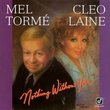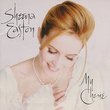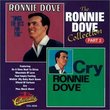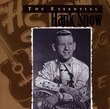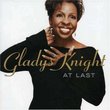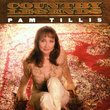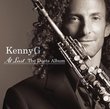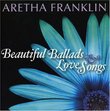| All Artists: Sarah Vaughan Title: It's Magic!: 1944-1950 Members Wishing: 0 Total Copies: 0 Label: Jazz Legends Release Date: 7/1/2003 Genres: Jazz, Pop Styles: Vocal Jazz, Bebop, Vocal Pop Number of Discs: 1 SwapaCD Credits: 1 UPC: 723724554627 |
Search - Sarah Vaughan :: It's Magic!: 1944-1950
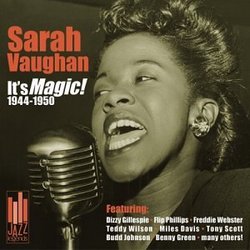 | Sarah Vaughan It's Magic!: 1944-1950 Genres: Jazz, Pop
|
Larger Image |
CD DetailsSimilarly Requested CDs
|
CD Reviews4 1/2 Excellent, But Uneven Sound Quality M. Allen Greenbaum | California | 10/23/2006 (4 out of 5 stars) "This collection of Sarah Vaughan's early work ( 1945-1950) is uneven, but there's enough excellent work by Ms. Vaughan to compensate for several poorly recorded cuts (out of balance, an annoying overamped, "echo-ey" quality is the worst offender, imbalance, and some scratches typical of early recordings not digitally cleaned--which many prefer, by the way.) Unfortunately, as noted in the thorough, intelligent liner notes by noted critic Scott Yanow (who also compiled this collection), much of her post-Apollo Theatre work with the great Earl Hines band (which featured Dizzy and Charlie Parker, and was a precursor to later bop work) is unavailable because of the 1943-1944n Musicians' Union strike. A similar strike in kept her off most recordings in 1948. Still, this is a valuable record of her early work, and Vaughan fans should get it. I take off a point only because of the uneven sound quality on some of the songs.
The album open swith the excellent "Interlude," a vocal of "A Night in Tunisia" with an excellent solo by the song's composer, Dizzy Gillespie, and renowned jazz critic Leonard Feather on piano. Just 20, she recorded "Interlude" two years after her famous discovery at the Apollo Theatre (winning the $10 first prize) and subsequent recommendation by Billy Eckstine for the Hines big band. This 1944 New Year's Eve recording, the earliest on the album, is remarkably well-recorded, better than some of the later cuts. The May 1945 features Diz, with Charlie Parker and Flip Phillips sharing the sax, Curley Russell on bass, and the great Max Roach on drums. Sarah has a superb sense of dynamics, and gives a convincing performance. Aside from a too brief saxophone solo, the musicians are wasted. Tad Dameron arranged two May 1946 cuts: "If You Same thing on the inferior melody "If You Could See Me Now (not the more famous song byu that title), which is a fairly boring excursion despite the presence of Bud Powell on piano and Kenny Clarke on drums. "You're Not the Kind," a song recorded many times by Vaughan, features an excellent Freddie Webster trumpet solo. Sassy has a nice intimate sound, but later recordings are more compelling. Still, this Tad Dameron arranged session I've got a crush on you is a much better outing. Sassy sounds velvety smooth and vulnerable, and she takes chances with ther phrasing. Her tonal coloration makes up for a slightly scratchy recording quality. In contrast, the recording quality of "everything I have is YOUrs' is excellent. Jimmy Jones piano and celeste (!) add a magical, romantic quality, and George Treadwell's muted trumpet solo is superb. THis is an extremely enjoyable cut, and one hears Sassy's operatic range, shading, tremolo, and warm shading. "Don't worry about Me (August 1946)" may have the greats Teddy Wilson on piano, Buck Clayton on trumpet, and Don Byas on tenor but sound is terrible, especially the overmiked Sarah, who sounds like she's singing from somewhere in a cave with a jacked up amplifier. Still, she shows remarkable jazz instincts and an originality that, as with all of these recordings, seem impossibly mature for her age. "September Song (November 1946)" is appropriately tender, and the flaws in the recording quality actually lends a more authentic 1940's sound. The instrumental highlights are Remo Palmieri's guitar riffs, Teddy Wilson on piano, and a wonderfully brooding saxophone solo by Charlie Ventura that easily recalls Coleman Hawkins. Sarah sounds so Sarah on "Tenderly (July 1947)," it's an archetypal Vaughan vocal, with magnificent tones, phrasing, and range. Simply beautiful. Unfortunately, it's followed by the poorly recorded and somewhat inferior instrumentals of "The One I Love (November 1947"). "It's Magic (December 1947)," made famous by Doris Day, isn't helped by the syrupy lyrics or backing, or the mundane lyrics. Still, Vaughan's low tones and expression of vulnerability highlight an otherwise pedestrian number. A faster tempo might have given her a chance to make something of this song. The second music strike resulted in only two 1948 recordings, but Vaughan roared back in 1949 and 1950--cuts 13 through 20 from this period are uniformly excellent. Both the song and sound quality increase dramatically with the January 1949 "Black Coffee." Vaughan sounds all smoky-sultry, and her voice dips into the blue notes. Six months later, she recorded the superlative "Just Friends," again backed by lush strings. Vaughan seems increasingly confident, performing daring swoops and really swinging "I Cried For You," backed by the surprisingly adept Hugo Winterhalter Orchestra (maybe someone else has heard of them). Tracks 17-20 come from two dates in May 1950 with an excellent band: Miles Davis on trumpet, Benny Green (trombone), Tony Scott (clarinet), Budd Johnson (tenor sax), Jimmy Jones (piano), Freddy Green (guitar), Mundell Lowe (guitar), Billy Taylor (bass), and J. C. Heard (drums)! "Ain't Misbehavin'" features excellent backing on sax, clarinet, and trombone, and Miles Davis in a brief turn. When Sassy sings, however, most of the instruments lay out, as if in appreciation of another soloist non-pareil. Miles sounds like he's the featured player on "It Might as Well Be Spring"; he's riffing to his own melody here, and he needs to give Vaughan more room. Some of this may due to the sound engineering, the trumpet is too far out front. In contrast, Miles takes a muted approach on "Mean to Me," it's much more effective. Vaughan takes "Nice Work If You Can Get It" at a fast clip, but still manages some of her personal touches (the little girl voice--done with some humor, some great high/low note contrasts. As much As I love Miles' solo here, the song just begs for scat, and we're denied that here. The last cut (from September 5, 1950) is a big band arrangement of "Perdido," that's big, brassy, and full of bravado--just like Sassy's scat-inflected vocal. Other recommended Sarah Vaughan albums available at Amazon.com are her famous turn with the great trumpeter Clifford Brown ("Sarah Vaughan," Verve Records) and "The Definitive Sarah Vaughan," a compilation of mostly mid-later 1950's songs, also on Verve. " |

 Track Listings (22) - Disc #1
Track Listings (22) - Disc #1